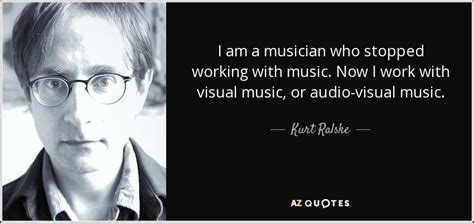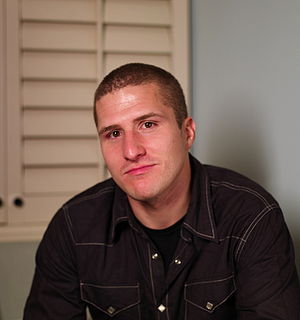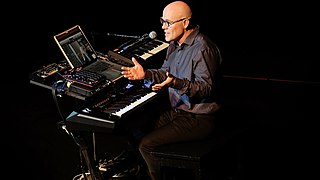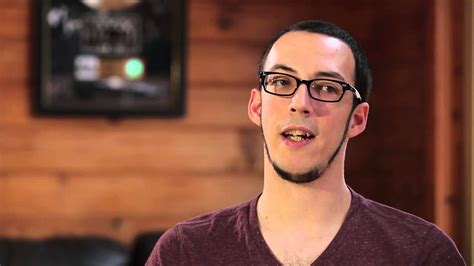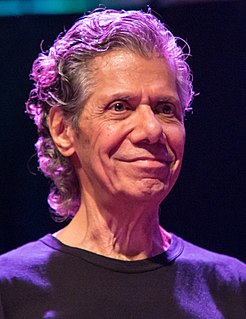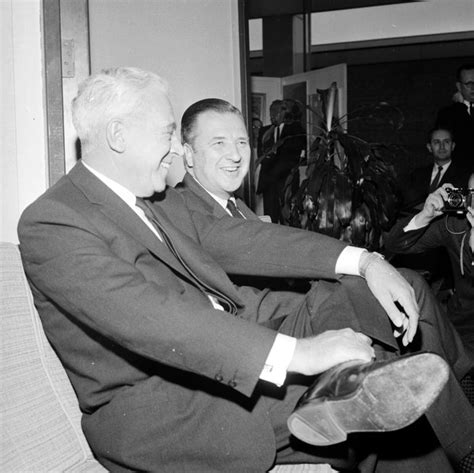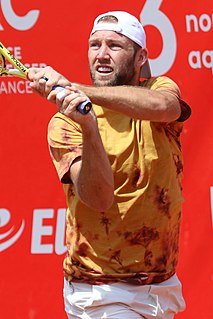A Quote by Kurt Ralske
I was a musician who began playing with computers, to see if they could make some tasks simpler. I developed some "tricks" or strategies for working with audio files, and then discovered that the same tricks could be applied to video files, or really, any type of data. Previously I made many different kinds of music. I did some work as a composer of film scores. In that role, my task was to create audio to match and deepen the visual. In my work now, the role is often reversed: I have to create images to match and deepen the audio.
Quote Topics
Any
Applied
Audio
Began
Composer
Computers
Could
Create
Data
Deepen
Developed
Did
Different
Different Kind
Different Kinds
Different Kinds Of Music
Discovered
Files
Film
Film Scores
Images
Kinds
Made
Make
Many
Match
Music
Musician
Now
Often
Playing
Really
Reversed
Role
Same
Scores
See
Simpler
Some
Strategies
Task
Tasks
Then
Tricks
Type
Video
Visual
Work
Working
Related Quotes
I work with digital audio, which is like sculpting, a form of chiseling down metal or wood. And I take audio and move it back and forth between the analog and digital realms and work with it almost like a plastic art until it takes forms in different shapes. And I use those figurines that come out of that type of work.
I noticed a lot of bands always having a few people in the band being interested in recording and audio production, so I got the idea to create products that would appeal to them. Rather than create tools that only engineers could understand, I designed tools that any musician could use and get instant great sounding results.
I'm a huge fan of voice memos. I put down many ideas there and sometimes I even use some of those audio files in my actual recordings. You get this really raw energy from voice memos that you can't get when you sit down in a studio with a microphone. There's this sense of immediacy, which I'm really drawn to.
